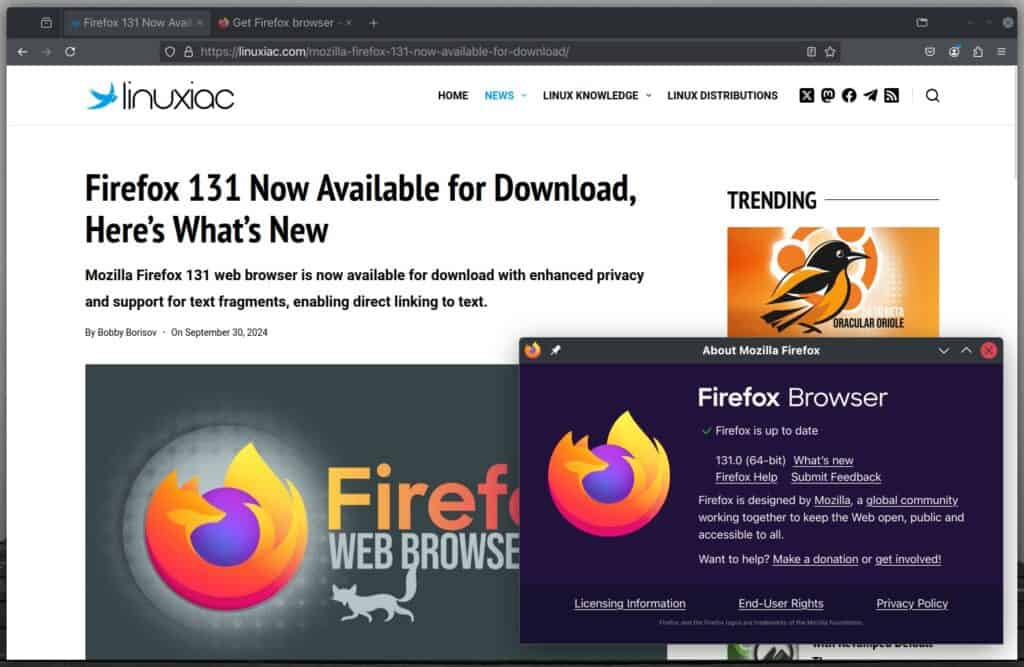Less than a month after the previous 130 release, Mozilla released a new version of its widely used open-source browser, Firefox v131, now available for download.
Firstly, Firefox will now temporarily remember when users grant websites permissions, such as geolocation access. These temporary permissions are designed to protect your privacy by automatically removing themselves after one hour or when you close the tab. This ensures that websites don’t retain unnecessary access to your information longer than needed.
In addition, hovering your mouse over an unfocused tab will now display a visual preview of its contents. This feature makes it easier to navigate between multiple tabs, allowing you to quickly find the page you’re looking for without clicking through each tab individually.

Android users can now enable protection against suspected fingerprinters using custom and strict Enhanced Tracking Protection options. This update gives you greater control over your privacy settings, making it harder for trackers to collect data across different websites.
Moreover, bookmarks in Firefox for Android are now saved in the folder where you last added a bookmark instead of defaulting to the top-level bookmarks folder. This improvement streamlines bookmarking, saving time when organizing your favorite sites.
Firefox 131 has also re-introduced the ability to navigate to the search engine home page by clicking on the search bar icons with a SHIFT key modifier. This handy shortcut provides quick access to your preferred search engine’s homepage, enhancing your browsing efficiency.
On the developer front, as part of the ongoing updates to SVG 2, SVGGraphicsElement.nearestViewportElement and SVGGraphicsElement.farthestViewportElement have been officially removed. Since February, these properties have displayed deprecation warnings, so developers are encouraged to update their code accordingly.
Furthermore, Firefox now supports text fragments, allowing users to link directly to a specific portion of text in a web document via a special URL fragment. This feature enhances content sharing by pointing readers straight to the relevant information.
Finally, support for Cookies Having Independent Partitioned State (CHIPS) has been added, allowing developers to opt for a cookie in storage partitioned per top-level site, providing more granular control over cookie behavior and enhancing user privacy.
Additionally, “SameSite=None” cookies will now be rejected when no Secure attribute is included. This change aligns with web security best practices, ensuring cookies are only sent over secure connections.
Those eager to get it can download the latest version directly from Mozilla’s server. Windows and macOS users can expect an over-the-air update within the next day. Users on rolling release Linux distros should look for the new Firefox 131 as an update in their repos over the next few days.

Still no native tab group management.
Still no URL as home page on Android.